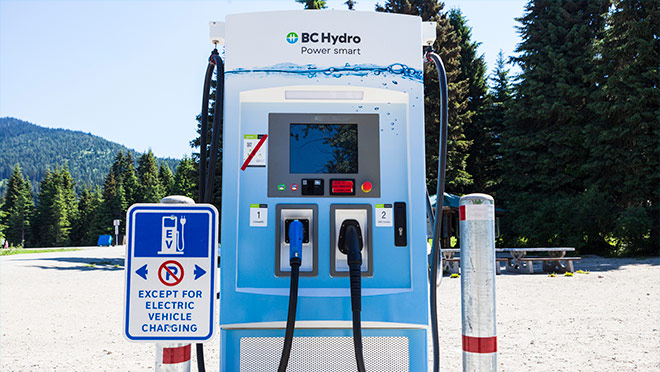Earth Day: Act now, because it's not too late

After UN's 'final warning', how you can help combat climate change
The United Nations' Intergovernmental Panel on Climate Change (IPCC) is not sugar-coating its messaging around action on climate change.
"Climate change is a threat to human well-being and planetary health," says the IPCC in its March 19, 2023 Synthesis Report, which it described as a "final warning" from scientists. "There is a rapidly closing window of opportunity to secure a liveable and sustainable future for all."
A day later, the IPCC released a message with a silver lining, stating that "there are multiple, feasible and effective options to reduce greenhouse gas emissions and adapt to human-caused climate change, and they are available now."
Here in B.C., we're fortunate to be particularly well equipped to combat climate change, thanks to the power of water. BC Hydro's system leans on our hydroelectric facilities to generate 98% clean energy, and it's making it easier for us all to reduce our carbon footprints.
With Earth Day arriving on April 22, here are a few ways you can reduce your carbon footprint:
Heat your home with an air-source heat pump
The typical B.C. home currently heated by a gas furnace could save two tonnes a year in carbon emissions by switching to an electric heat pump, which extracts heat from outside the home – even in sub-zero temperatures – to keep you comfortable. And in summer, the heat pump reverses to act as an air conditioner.
Get combined B.C. and federal rebates of up to $11,000 when you switch from natural gas, oil, or propane heating systems to qualifying heat pumps. And if your home is heated by electric baseboard heaters, upgrade to a far more efficient heat pump system and get combined rebates of up to $7,000.
Learn more about the benefits of switching to a heat pump.
Switch to an electric vehicle
If your electricity is generated by coal or other fossil fuels, you could argue that driving an EV doesn't make much difference to carbon emissions. But with 98% of the electricity we generate being clean, and combined federal and provincial rebates, EVs make total sense in B.C.
The Canadian Automobile Association's driving costs calculator shows that even the most fuel efficient version of the top-selling vehicle in Canada – the long-time champion Ford F-150 pickup – emits over 26 tonnes of greenhouse gases (GHGs) when driven an average of 20,000 km a year over five years in B.C. By comparison, Ford's electric equivalent – the F-150 Lightning pickup – emits no emissions while running and offers annual fuel savings of over $3,200 over its gas-powered sibling.
Learn more about electric vehicles in B.C., including rebates for adding an EV charger in your home, condo or apartment building.
Avoid using the car: transit, bikes, and walking
It's less expensive and carries a much smaller CO2 footprint to use public transit, a bike, or your feet, to get you to where you want to go. And with the arrival of electric bikes and scooters, there's now a fast, easy alternative to pedal power.
Did you know? If you scrap your older gas-powered vehicle (pre-2000) through the SCRAP-IT program, you can get $750 off the purchase price of a new electric bike. Other options include a $300 cash rebate, car share credits, or free transit passes through TransLink, or the Victoria Regional Transit System.
Switch to electric devices around the home
There's a growing number of ways you can reduce your fossil fuel use at home by switching to electric options, including induction ranges, electric barbecues, leaf blowers, and power washers.
Fly less often, and make your trips longer
Instead of flying off on two or three vacations a year, consider fewer flights, for longer trip durations. In between, discover the delight of travel closer to home. The CO2 emissions of a return flight from Vancouver to London, England for a family of three is estimated at 6.7 metric tonnes, or 23 times the emissions of a Vancouver-to-Jasper return trip in a gas-powered SUV.
Eat more vegetables and fruits
Reducing your meat consumption isn't just the big change in the updated Canada Food Guide for healthy eating. It's also a way to reduce carbon emissions associated with meat production. If you're curious how your diet is impacting greenhouse gas emissions, check the fun and quick FoodPrint quiz.
Limit your use of plastics
Check how much plastic you use by trying earthday.org's plastic calculator, then take steps to reduce how much you use. Little things such as using a reusable water container – and refilling it with B.C.'s excellent tap water – help reduce both your carbon footprint and help limit plastic pollution.
Related:

